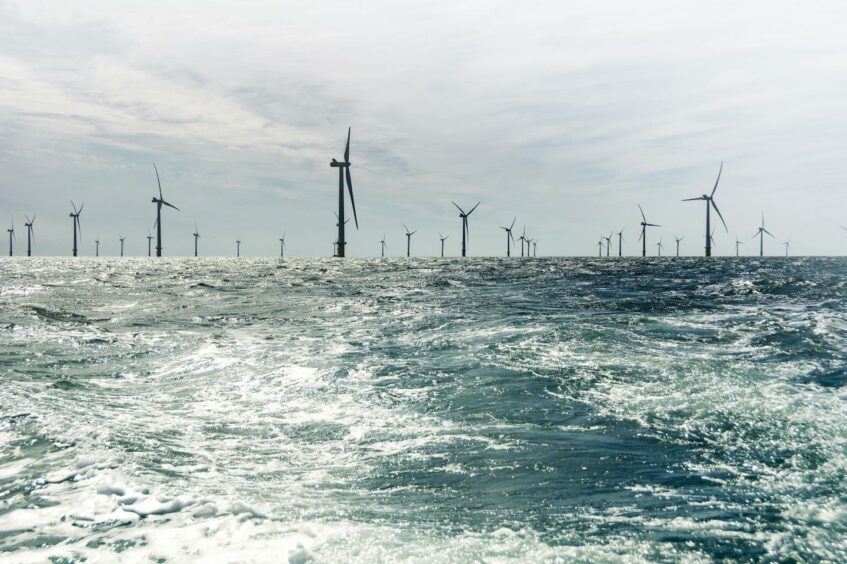
Now the confetti has settled from the Crown Estate’s ScotWind auction results, it’s time to look at what support is still needed to help ScotWind’s local stakeholders take advantage of the opportunity
Bidders at ScotWind’s recent seabed auction had to submit a Supply Chain Development Statement (SCDS) that required them to lay out their anticipated levels of local content from each phase of their proposed projects. Initial indications have suggested a multi-billion-pound supply chain investment in Scotland, and many in the industry have hailed the SCDS’s inclusion in the auction as a game-changer for local stakeholder industries.
But local content pledges have a long and spotted history of not generating the returns they propose for the UK’s offshore wind support network; while this network has invested heavily into improving its ability to capture demand for local content, ScotWind and the SCDS gives us the opportunity to consider what other support is needed to give the UK supply chain, and the offshore wind sector, the boost they need to grow.
Local supply chain pledges aren’t new
As far back as 2012, when offshore wind projects started taking off on a large scale in the UK, local content pledges were already being written into the terms of seabed leases, and developers were pledging to strengthen their supply chains locally. At that time however the UK’s offshore wind supply chain was relatively undeveloped. In the Offshore Energy Support Vessel (OESV) sector, for example, crew transfer vessels were still being brought in from neighbouring European countries due to a lack of UK-owned tonnage, and sourcing overseas content was necessary for offshore wind projects to be built.
A decade on and the UK’s OESV sector has seen impressive expansion, with the local content community taking the initiative, making smart decisions, and instigating its own organic growth in line with domestic offshore wind expansion. But this growth pales in comparison to that experienced in Europe, with nations whose governments subsidise their domestic shipbuilding industries as a key part of realising their offshore wind ambitions. Even in emerging markets like the US and Asia, local content development and skills training is central to the expansion of offshore wind, while the established UK market remains comparatively underinvested.
This allows international suppliers to be more cost competitive than much of the UK’s OESV fleet and creates tangible commercial incentives for developers to U-turn on local content commitments. The key question around ScotWind and the SCDS should not only ask what ScotWind can do for the local supply chain, but what the UK government can do to support and elevate its domestic industries to answer the call for local content effectively and competitively.
More investment in people and resources is needed
While the UK now boasts an enviable local supply chain, it needs a top-quality workforce to really capture the benefits of ScotWind’s local content pledges. Skills and labour shortages are plaguing the local offshore wind support sector. While the current workforce keeps pace with the rapidly transforming nature of the wind industry, promotion of the sector as an attractive career prospect remains minimal, and a lack of publicised pathways into work is starving the sector of new recruits. In the OESV sector, apprenticeship schemes can and have helped expand and strengthen its labour force, and several OESV operators, including ourselves, have developed such schemes in partnership with local institutions to address the skills shortage.
This is one such area where additional support would seriously benefit the industry. We cannot wait for ScotWind’s bid winners to fire the starting gun before recruiting and training into the industry. Developers will need to be confident in the local supply chain’s ability to deliver if the UK is to truly benefit from local content commitments. Subsidising the development of training schemes to bolster the workforce and promote the offshore wind support sector as an attractive career opportunity, will enable the local content community to support the development of not just ScotWind, but other wind farms in the future.
The opportunity is here, and it’s time to deliver
The bottom line is that any move towards supporting local supply chains in the UK should be welcomed. ScotWind’s SCDS is a positive move insofar as the importance of local content has become central in the conversation around the build-out of the UK’s offshore wind sector. Bidders are now committing real money.
But the UK government needs to take this opportunity to roll up its sleeves and invest in growing and strengthening its energy stakeholder industries, in line with the expansion of offshore wind. Offshore wind in the UK has come a long way since 2012, and ScotWind will prove to be a once in a lifetime chance for domestic industries to contribute to the renaissance of British industry and engineering. These industries and the UK government need to work together to make the best of this opportunity.
Recommended for you
